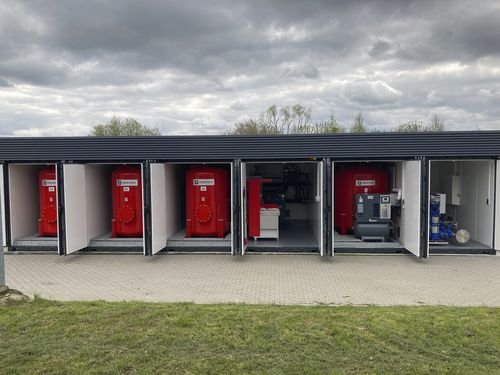Containerized water treatment plants for capacities up to 100 m3/h are the most pragmatic form of modernization/construction of any water treatment facility. Simplicity of form, combined with technical advancement guarantee rationally spent money. These types of facilities are dedicated in particular for:
• systems with a capacity of up to 1’800 m3/d, treating deep or surface water with a low or medium degree of pollution;
• small and medium municipalities with limited financial resources;
• users for which modernization of existing water treatment plant buildings is technically and economically unjustified;
• users which have not permanent and qualified technical staff to operate traditional water treatment systems;
• industrial and manufacturing facilities where the demand for water may gradually increase along with the production growth;
• all those who rationally plan their investment expenditures.
The main advantage of containerized water treatment plants is their modularity and the highest process flexibility available on the market. Anyone professionally involved with the subject of municipal water treatment plants knows that the overall technological layout of water treatment is often modified for reasons beyond the control of the user.
These are most often:
• increased demand for water due to development of buildings in the area,
• deterioration of raw water quality resulting in the need to improve the water treatment process,
• changes in legal regulations concerning quality parameters of drinking water intended for human consumption
(higher requirements),
• technical problems related to worn out equipment.

